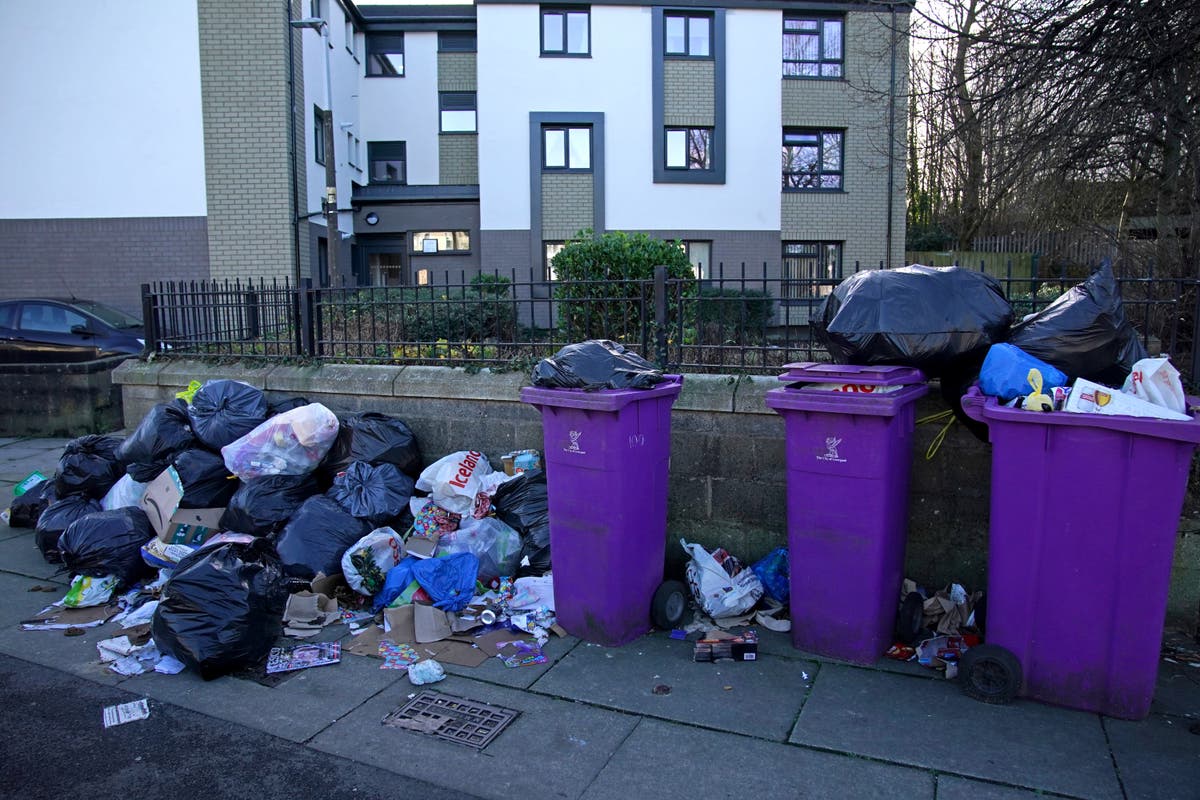Households and workplaces must now sort their rubbish into four bins under new rules to streamline waste disposal and stop an “avalanche of rubbish” ending up in streets, rivers and seas.
New guidelines for bins have been set out to bring in a universal standard whereby all areas will have the exact same rules, which environment secretary Steve Reed said would end the “fiasco” of families and businesses in some areas having to sort refuse into seven different bins.
“This Labour Government is ending the Wild West and introducing a streamlined approach to recycling to end to the postcode lottery, simplify bin collections and clean up our streets for good,” Mr Reed said, adding communities have faced an “avalanche of rubbish” in their streets and local environments.
The four containers will be for:
- residual (non-recyclable) waste
- food waste (mixed with garden waste if appropriate)
- paper and card
- all other dry recyclable materials (plastic, metal and glass)

Changes are set to start taking effect from 31 March 2025, when businesses will need to arrange for the collection of their recyclable waste under the new rules.
A year later, local authorities will begin collecting recycling from households under the new rules.
Under the new rules, all waste authorities will be required to provide weekly food waste collections from households from March 2026. The new standard is designed to allow people to “dispose of odorous organic waste frequently”.
Household recycling rates in England have stagnated at 45 per cent since 2015, according to government data.
Households in England dumped 5.6 million tonnes of packaging last year, according to analysis commissioned by the Local Government Association, County Councils Network, and District Councils Network.
The report found that 3.2 million tonnes of packaging were put into recycling bins, 2.3 million tonnes were put into residual – or “black” bins, and 70,000 tonnes were mistakenly put in with food waste.
The Department for Environment, Food & Rural Affairs said the four-bin default requirement is not expected to increase in the future to ensure councils and other waste collectors “still have the flexibility to make the best choices to suit local need”.




